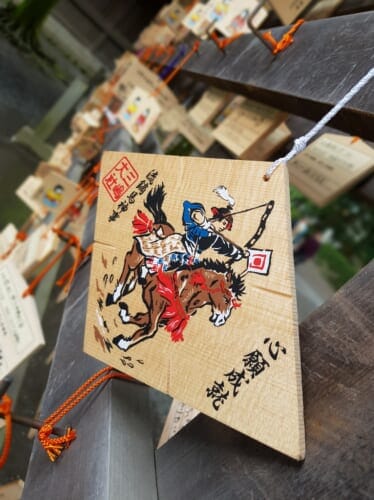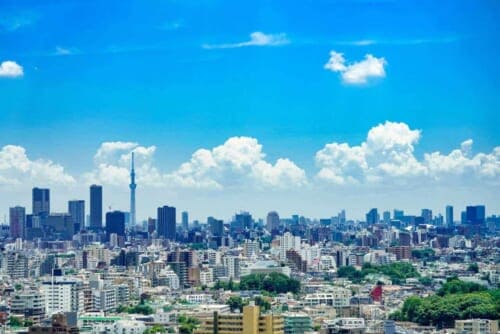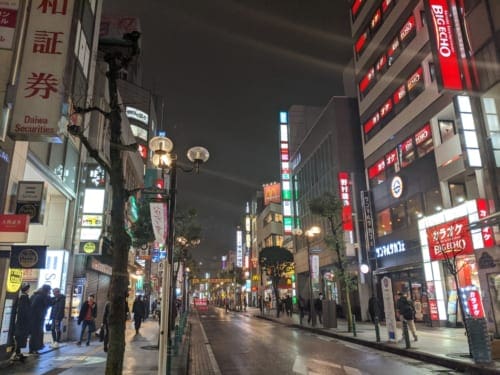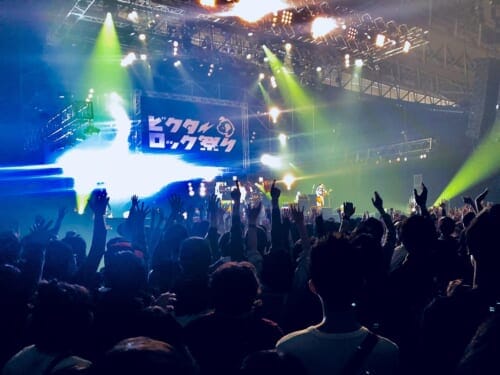How to live in Japan? Let’s be honest, who of us hasn’t asked this question before? And how often have we ultimately failed because of the bureaucratic jungle that denied us possible options for long-term visas?
In this guide, we would like to provide you with the most important information about long-term visas for Japan, what types of long-term visas there are, what requirements you have to meet, and what you should consider if you want to emigrate to Japan.
- Can I immigrate to Japan and live in Japan?
- What should I consider if I want to live in Japan?
- What types of long-term visas are there to live in Japan and how much do they cost?
- How can I get Permanent Residence in Japan?
- Is it possible to become a Japanese citizen?
- What do I have to do before I emigrate to Japan and shortly after?
Can I immigrate to Japan and live in Japan?
The simple answer to this question is: yes, you can. There are different types of long-term visas. Most of them allow you to live and/or work in Japan for a period of one, three, or five years.
Visa types that go beyond a short stay and allow you to stay in Japan for a longer period are as follows:
- Working Visa and Highly Skilled Professional Visa
- Student Visa and Internship
- Working Holidays Visa
- Spouse Visa
- Other types of long-term visas
- Permanent Residency
- Japanese Citizenship
What should I consider if I want to live in Japan?
The decision to immigrate and live in another country should never be taken lightly. Not only will the language be different, but so will the standard of living, the housing situation, and the social environment for most of us in Japan compared to our respective home countries.
Therefore, I would first like to give you a brief overview of the aspects to keep in mind when the question of wanting to live in Japan is in your head. Three aspects played a crucial role for me. But of course, these aspects can vary from person to person.
With its more than 50,000 Kanji, the Japanese language is included on UNESCO’s list of the 10 most difficult languages to learn for a reason. If you want to live in Japan, you will not be able to avoid studying the Japanese language in either the short or long term —from simple greetings and phrases to introduce yourself to the different ways to express feelings like ‘love’ in Japanese. In addition, you’ll benefit greatly by studying Kanji. For example, if you want to explore Japan’s rural parts by train, you’ll also have to be able to read Kanji in order to get off at the correct station.
Numerous natural disasters hit Japan every year. Japan’s earth shakes around 5,000 times a year, experiences an average of three typhoons per season, and brings with them floods, followed by heat waves of up to 41 degrees, as it did in 2018. If you have decided to emigrate to Japan, you’ll have to learn to be prepared for natural disasters.
Another issue is the cost of living and the housing situation in Japan. Those of you who have already been to Japan will know that Japanese apartments are much smaller compared to western apartments. The price for fruits and vegetables is also many times higher. In order to give you a small overview, here’s a monthly list of costs for the average income and expenditure for a two-person household in Tokyo area (as of April 2021). Insurance expenses are not included.
| Income/ Expenditure | |
|---|---|
| Monthly income | 543,063 yen |
| Rent (1LDK) | 120,947 yen |
| Utilities | 20,095 yen |
| Transport costs (public transport) | 39,875 yen |
| Food | 81,352 yen |
| Sanitary products | 4,884 yen |
| Medical prevention | 15,281 yen |
From personal experience, I’d suggest any first-timers to Japan wishing to move here first get to know the country, the people, and the way of life for at least one year before making a final decision.
What types of long-term visas are there to live in Japan and how much do they cost?
Before you can apply for a long-term visa for Japan, you usually need a so-called Certificate of Eligibility (CoE). This certificate is proof of the applicant’s fulfillment of certain entry and residence requirements and, except for the Working Holiday Visa, is required for all long-term visas.
Usually, the application for the CoE is submitted by your guarantor (employer, partner university, language school, etc.) directly to the immigration authorities in Japan and is not a responsibility (both cost and effort) on your part. The processing and issuing of the application can take about 2 to 3 months before the CoE is finally sent to you by post. Starting with the date of issue, the CoE is valid for 3 months, a visa must be applied for within this period.
You have to apply for your visa to your Japanese representation (embassy or consulate). The good news is that for most EU citizens, as well as Russian and US citizens, there are no visa fees.
For all other nationalities, the following visa fees apply:
| Visa fees (as of June 2021) | Fees |
|---|---|
| General visa fee * | Approx. $30 USD |
| Visa fee for Indian citizens | Approx. $8 USD |
The issuance of the visa usually does not take longer than 5 working days. Also note that the visa application must be submitted by you personally. Applications by email or post will not be accepted. Only when you have successfully submitted the application, it has been approved, and you have entered Japan, will you receive a residence card (在留カード zairyu kado). This is your identification card in Japan and provides information on your visa status (type, duration, etc.).
Next, let’s first take a look at the types of long-term visas available and for whom they are suitable.
Working Visa and Highly Skilled Professional Visa
Would you like to accept a job offer in Japan, your company is relocating you to Japan, or you are taking up religious work as a missionary in Japan? Then you fall in the working visa category.
To apply for a working visa or a highly skilled professional visa, you will normally need the following documents:
- A valid passport.
- A completed application form (this can be usually downloaded on the website of the Japanese representation in your country).
- A passport photo (45mm x 45mm/ 2in x 2in) that is not older than 6 months.
- The original CoE and a copy of it.
- For the Highly Skilled Professional Visa: A point calculation detailing your activity in Japan as well as an evidence to substantiate your knowledge (certificates, licenses, etc.).
Depending on the type of your occupation, the validity of your visa may vary. The different periods of validity for a normal working visa can be found in the following table:
| Job titles | Examples | Validity |
|---|---|---|
| Professor | University professor, assistant professor, etc. | 5 years, 3 years, 1 year or 3 months |
| Artist | Composers, songwriters, artists, sculptors, photographers, etc. | 5 years, 3 years, 1 year or 3 months |
| Religious activities | Monks, bishops, missionaries, etc. | 5 years, 3 years, 1 year or 3 months |
| Journalist | Newspaper journalists, magazine journalists, editors, news cameramen, etc. | 5 years, 3 years, 1 year or 3 months |
| Business manager | Company presidents, directors, etc. | 5 years, 3 years, 1 year, 4 months or 3 months |
| Legal/Accounting services | Attorneys, judicial scriveners, public accountants, tax accountants, etc. certified in Japan | 5 years, 3 years, 1 year or 3 months |
| Medical services | Dentists, pharmacists, nurses, etc. certified in Japan | 5 years, 3 years, 1 year or 3 months |
| Researcher | Investigators, etc. at research institutes, etc. | 5 years, 3 years, 1 year or 3 months |
| Instructor | Teachers, etc. at elementary schools, intermediate schools and high schools | 5 years, 3 years, 1 year or 3 months |
| Engineer/Specialist in humanities/International services | Scientific engineers, IT engineers, foreign language teachers, interpreters, copywriters, etc. | 5 years, 3 years, 1 year or 3 months |
| Intra-company transferee | People transferred to the Japanese branch | 5 years, 3 years, 1 year or 3 months |
| Nursing care | Certified care worker | 5 years, 3 years, 1 year or 3 months |
| Entertainer | Musicians, actors, singers, dancers, sportspeople, models, etc. | 3 years, 1 year, 6 months, 3 months or 15 days |
| Skilled labor | Chefs specializing in the food of a foreign country, pilots, sports trainers, sommeliers, etc. | 5 years, 3 years, 1 year or 3 months |
| Specified skilled worker | Work-ready foreign nationals who possess certain expertise and skills in certain industrial fields. | (i) 1 year, 6 months or 4 months (ii) 3 years, 1 year or 6 months |
| Technical intern training | Technical intern | 1 year or 6 months |
The periods of validity and job titles that fall in the Highly Skilled Professional Visa are as follows:
| Job title | Examples | Validity |
|---|---|---|
| Highly skilled professional | Highly qualified professionals, selected according to a “points system”, from the areas of academic research activities, work that requires special knowledge or skills in the natural sciences or humanities as a result of a contract with a public or private organization in Japan; and the operation or management of a public or private organization in Japan. | 5 years |
There are also special visa options for family members (spouses and children) for people who fall in the category of the Highly Skilled Professional Visa, allowing them to stay in Japan for 5 years, 3 years, or one year. Parents of highly qualified professionals who look after their grandchildren (under 7 years old) or who want to support their pregnant (in-law) daughter will be able to stay in Japan for 1 year or 6 months.
Highly qualified professionals who have achieved 70 or 75 points in the “points system” can apply for permanent residency after an uninterrupted 3-year work stay in Japan.
Highly qualified workers who have achieved 80 or more points can apply for permanent residency after one year of uninterrupted work in Japan.
Student Visa and Internship Visa
If you are still in the middle of your studies, then the category of student and internship visas will be of interest to you. It is important to know that the student visa is not only valid for university students, but also for all those who are planning a longer stay at a language school in Japan.
As with the work visa, you need the following documents to apply for a student or internship visa:
- A valid passport.
- A completed application form (this can be usually downloaded on the website of the Japanese representation in your country).
- A passport photo (45mm x 45mm/ 2in x 2in) that is no older than 6 months.
- The original and copy of your CoE.
Let’s take a closer look at the student visa first:
| Visa | Examples | Validity |
|---|---|---|
| Student visa | (Exchange) students, language students | 4 years 3 months, 4 years, 3 years 3 months, 3 years, 2 years 3 months, 2 years, 1 year 3 months, 1 year, 6 months or 3 months |
The period of validity of your student visa is usually based on the duration of the study program for which you are enrolled. University-internal exchange programs at partner universities in Japan, for example, usually have a duration of one or two semesters, which corresponds to a student visa validity period of 6 months or one year (in this case, however, you will often receive a visa with a validity period of 1 year and 3 months).
If you want to apply for a student visa in order to go to a Japanese language school, the maximum study period is 2 years, as is the validity of the visa.
Next, let’s take a closer look at the different types of internship visas:
| Visa | Examples | Validity |
|---|---|---|
| Designated Activity (特定活動, tokutei katsudou) | Paid internship, personal assistance from diplomats | 5 years, 4 years, 3 years, 2 years, * 1 year, * 6 months or * 3 months |
| Cultural Activity (文化活動, bunka katsudou) | Unpaid internship, people studying about Japanese culture (tea ceremony, ikebana, etc.) | 3 years, 1 year, 6 months or 3 months |
Normally, a paid internship in Japan requires that you are enrolled at a university in your home country for the entire duration of the internship. For unpaid internships that do not exceed a period of 90 days, people from visa-free countries do not need to apply for the Cultural Activities Visa. The maximum 3-month Designated Activity Visa for paid internships refers to “summer jobs” that you can do during the lecture-free period at your university.
Working Holiday Visa
The Working Holiday Visa serves for cultural exchange and to promote a better understanding between Japan and the home country of the young people who choose this type of “holiday work stay”.
Unlike the types of long-term visas presented above, you do not need a CoE to apply for the Working Holiday Visa. Instead, certain requirements must be met for the visa to be issued:
- You have to submit the application in person and be willing to take part in an interview.
- The purpose of your trip is to explore Japan and to learn about Japanese culture, with the possible option of working. Working in Japan should not be the main reason for applying.
- You are at least 18 years old and not older than 30 years at the time of submitting your application.
- You are not accompanied by dependents (spouses or children).
- You have sufficient financial means for the first months in Japan (approx. 200,000 yen/ approx. 1,770 USD).
- You have a valid passport and a flight ticket for the outbound flight. If you have not yet booked your return flight ticket, you must provide additional financial reserves of around 1,400 USD.
- You have not yet been granted a Working Holiday Visa.
- For the duration of your stay in Japan, you will either need a copy of an insurance policy, an insurance application form or a written commitment for membership in te National Health Insurance of Japan.
- You must be in good physical and mental condition.
- You do not have a criminal past.
If you meet all of these requirements, we now come to the documents required for applying for the Working Holiday Visa:
- A valid passport.
- A completed application form (this can usually be found on the website of the Japanese representation in your country).
- A passport photo (45mm x 45mm/ 2in x 2in) that is no older than 6 months.
- Flight ticket(s)
- Proof of your financial reserves (e.g. bank statement) of at least 2,300 USD and at least 3,000 USD if you do not yet have a return ticket.
- Proof of overseas health insurance for the duration of your entire stay or the written declaration of commitment for membership in the National Health Insurance of Japan.
- Your itinerary (the form will be completed in English or Japanese).
- Your resumé (in English or Japanese).
- A one-page letter of intent in English or Japanese.
You will probably also ask yourself what exactly you should write in the letter of intent. When writing it, simply use the following questions as a guideline:
- Who are you and what are you doing?
- Why do you want to do a Working Holiday?
- Why do you want to go to Japan of all places?
- What do you hope for from your stay in Japan?
- Why should you of all people get the Working Holiday Visa?
With these questions in mind, writing the letter of intent should not be a problem for you.
If you are in Japan with a Working Holiday Visa, avoid looking for a job in the “entertainment industry.” This includes activities in nightclubs, bars, and the like. If you stay in Japan for less than a year with a Working Holiday Visa, you will be registered by the Japanese tax system as “Non-Residents.” This means that you will not receive any income tax benefits and income taxes will automatically be 20.42%.
Spouse Visa
Another type of long-term visa is the spouse visa, of which there are three different variants:
- The Dependent Visa (if your spouse works in Japan).
- The Spouse or Child Visa of a Japanese National (if your spouse/ parents is Japanese).
- The Spouse of Permanent Resident Visa (if your spouse has a permanent residence permit in Japan).
Depending on which applies to your case, the individual documents may differ in exceptional cases. Otherwise, the following documents are required for all three types of spouse visas:
- A valid passport.
- A completed application form (this can usually be found on the website of the Japanese representation in your country).
- A passport photo (45mm x 45mm/ 2in x 2in) that is no older than 6 months.
- The original and copy of the CoE.
An application with individual documents must be approved by the Japanese embassy in your country, which is why you should contact the embassy beforehand. If the application with the individual documents is approved in your case, you will need the following documents to apply for the Dependent Visa:
- A valid passport.
- A completed application form (this can usually be found on the website of the Japanese representation in your country).
- A passport photo (45mm x 45mm/ 2in x 2in) that is no older than 6 months.
- A copy of your spouse’s passport and visa, possibly already a copy of your partner’s Residence Card (though the original is better).
- Your spouse’s employment contract from Japan.
- A certified copy of your marriage certificate.
- Confirmation of residence in Japan, e.g. through a rental contract.
To apply for a spouse visa if your partner is Japanese, the following documents are required for each individual case:
- A valid passport.
- A completed application form (this can usually be found on the website of the Japanese representation in your country).
- A passport photo (45mm x 45mm/ 2in x 2in) that is no older than 6 months.
- A recent copy of the family register (koseki tohon) from Japan, which is no older than 6 months and in which the marriage is already registered.
- A certificate of residence from Japan.
- Proof of financing (e.g. employment contract) or proof of a guarantee.
- A copy of your spouse’s passport.
If your spouse has a permanent residence permit for Japan and you would like to apply for a spouse visa, the following documents are required for the individual case:
- A valid passport.
- A completed application form (this can usually be found on the website of the Japanese representation in your country).
- A passport photo (45mm x 45mm/ 2in x 2in) that is not older than 6 months.
- A copy of your spouse’s passport and visa, possibly already a copy of your partner’s Residence Card (though the original is better).
- A certificate of residence from Japan.
- Proof of financing (e.g. employment contract) or proof of a guarantee.
- A copy of all the pages of your spouse’s passport.
Even if you have submitted all the documents, the embassy may ask for additional documents. Especially in the case of a marriage with a Japanese citizen, the Japanese government does everything possible to expose fake marriages, which is why a lot of evidence has to be presented for the recognition of the marriage in Japan (photos, chat histories, flight tickets, etc.).
Let’s now take a look at the duration of validity of the three different types of spouse visas:
| Visa | Validity |
|---|---|
| Dependent Visa | 5 years, 4 years, 3 months, 4 years, 3 years, 3 months, 3 years, 2 years, 3 months, 2 years, 1 year, 3 months, 1 year |
| Spouse or Child Visa of a Japanese National | 5 years, 3 years, 1 year or 6 months |
| Spouse of Permanent Resident Visa | 5 years, 3 years, 1 year or 6 months |
You can find out what options there are to apply for a permanent residency in a separate section.
Other types of long-term visas
In addition to the types of long-term visas already mentioned, there are, of course, other possible options that we have listed here for you:
| Visa | Examples | Validity |
|---|---|---|
| Diplomat Visa | Diplomats, diplomatic couriers/agents, etc. | Necessary duration of their mission |
| Official Visa | Administrative and technical staff of diplomatic missions and members of the service staff, etc. | 5 years, 3 years, 1 year, 3 months, 30 days or 15 days |
| Start-up Visa | Community sponsored entrepreneurs in Japan and spouses/ children of the entrepreneurs | 6 months |
| Long-term Resident Visa | People with Japanese ancestry, Indochinese refugees, etc. | 5 years, 3 years, 1 year, 6 months or a specified period of less than 5 years |
How can I get Permanent Residence in Japan?
Perhaps you already have a work or spouse visa for Japan, and you are wondering when and how you can apply for permanent residency.
Of course, it would be possible to just stick to the original type of visa, but the permanent residence permit for Japan also comes with some advantages. For example, with a permanent residency, you are no longer subject to restrictions when choosing your job, which means that you can also orientate yourself in a new professional direction. Another advantage is that there is no need to continuously extend your visa and the associated administrative procedures, as well as the fees of 4,000 yen associated with the application for an extension of your visa. However, reasons such as simplified access to bank loans or protection for spouses in the event of death also play a role in applying for permanent residency.
Now let’s take a look at the requirements that you have to meet if you want to apply for permanent residency in Japan:
- You are not allowed to have any criminal past (no previous convictions, no traffic offenses, payment of taxes in time, etc.).
- You have to be able to prove that you have a secure job with which you can finance your own life.
- You have to meet all requirements for your current visa.
- You have already lived in Japan for 10 years, thereof you should have spent 5 years in Japan with a work or spouse visa.
- You currently have the longest option for your residence visa (usually a duration of 3 years).
- You have always paid your taxes and contributions to the Japanese social security system on time.
- You have a guarantor (Japanese citizen or a person with a permanent residence visa) who will assist you with the application.
- In a period of 12 months before and during the application process, you have been in Japan for more than 6 months.
This list of requirements, especially the 10-year residency requirement in Japan, may seem a little intimidating at first, but under certain circumstances, the 10-year residency requirement can be reduced. You can see these circumstances here:
- Spouses who have been married for 3 years and have lived in Japan for more than a year.
- Children of Japanese nationals or permanent residents who have lived in Japan for more than a year.
- Long-term residents or refugees who have lived in Japan for more than 5 years.
- People with a Highly Skilled Professional Visa. With a score of 70, permanent residency can be applied for after 3 years, with a score of 80, after one year.
- Individuals who have lived and served in Japan for more than 5 consecutive years (with regard to diplomatic, social, economic or cultural aspects).
And if you now meet all the requirements for applying for a visa or even some of the requirements to shorten the 10-year period, then you can now go to the necessary documents that you need to apply for permanent residency. The necessary documents are as follows:
- The Permanent Residency application form (永住許可申請書 eijuken shinsei-sho).
- A passport photo (4c, x 3 cm) no older than 3 months. It should have a white background.
- Your current residence certificate (住民票 juminhyo).
- Evidence from your employer (在職証明書 zaishoku shomeisho). If you are dependent on your spouse, this document will be submitted by your spouse.
- Proof of your income (所得 shotoku) and proof of the municipal taxes you have paid (住民税 juminzei). This information is usually included in your tax certificate, the nozei shomeisho (納税証明書) or otherwise in the kazei shomeisho (課税証明書).
- Proof of your national health insurance.
- A copy of your passport.
- A copy of the front and back of your residence card (在留カード zairyu kado).
- (If your spouse is a Japanese citizen, you will need a copy from the Japanese Family Register, koseki tohon 戸籍謄本.)
In addition, further documents are required from your guarantor:
- A declaration of suretyship (身元保証書 mimoto hosho-sho).
- Evidence from the employer (在職証明書 zaishoku shomeisho).
- Certificate of income (所得証明書 shotoku shomei-sho) of the previous year.
- A current residence certificate (住民票 juminhyo).
You can plan with around 4 to 8 months for the duration of the application process for your permanent residence. Of course, the exact period depends on the individual cases and case officers. The application for permanent residence will cost 8,000 yen.
Is it possible to become a Japanese citizen?
The decision to adopt another nationality, in this case, the Japanese one, may be made for different reasons, be it the advantages of the Japanese passport, the desire to vote, or professional background, such as changing jobs in the public service in Japan. If you are also thinking about taking on Japanese citizenship, here are the requirements you have to meet and how the application process works.
In 2019, around 10,455 people had exactly this wish. 8,453 people received the Japanese citizenship (国籍取得 kokuseki shutoku, acquisition of citizenship) and around 5.7 percent of naturalization applications (帰化申請 kikashinsei) were rejected. So, you can see that it is not entirely impossible to become Japanese on a passport.
What are the requirements for Japanese citizenship?
Basically, there are five requirements that you have to meet in order to apply for naturalization:
- You have lived in Japan for at least five consecutive years.
- You are at least 20 years old.
- You don’t have a criminal record.
- You can finance your life in Japan by yourself.
- You are ready to give up your original citizenship.
As with long-term visas, there are also certain exceptions here. These concern the financing of life in Japan and the surrender of your original citizenship. If you are married in Japan, your spouse can also support you if you are not the main breadwinner.
With regard to citizenship, the principle applies that dual citizenship is not allowed in Japan. Only people under the age of 20 can have dual citizenship but must have decided on a nationality before their 20th birthday. Only in exceptional circumstances, such as when you’re unable to discard your citizenship even after extraneous effort, may dual citizenship may be possible. However, you must provide evidence on why this is the case.
How does the application process for naturalization work and which documents are required?
Let’s take a look at the documents that you will need for your application for naturalization:
- The application form with 2 photos (5cm x 5cm).
- A handwritten explanation of why you want to become a Japanese citizen.
- Your resumé.
- A written oath on your information.
- A statement of your family relationships and family documents.
- An explanation of how you make a living.
- Evidence of our living and working place and a hand-drawn map of the area.
- Graduation certificates
- Birth certificate
- Tax and asset statements
- Your Residence Card and your passport.
You will find out which other documents you have to submit during the interviews that are part of the application process. Here is the application process itself, which contains several sections and is partly also in Japanese.
The application process for Japanese citizenship begins with a preliminary interview, during which an immigration officer will assess your qualifications for acquiring citizenship. If the employee is of the opinion that you are qualified, you will be invited to a second interview.
In the second interview, you will find out which documents, in addition to those already listed, you need for the application and which conditions you still have to meet in order to obtain Japanese citizenship. In addition, you will be shown a one-hour naturalization video that explains how to behave and integrate into Japanese society. With the help of the naturalization book, you can complete your documents after the second interview.
When these preparations have been completed and you have all the documents together, you can go to the official application interviews. The duration and frequency of the discussions vary from case to case and also depend on whether documents still have to be submitted. Immigration officials may also visit your home during the application process.
If all documents are complete and free of errors, the final application interview takes place, during which you have to submit an affidavit before your application for Japanese citizenship is officially recognized and forwarded to the Ministry of Justice. Now your naturalization application only needs to be confirmed by the Ministry of Justice and you officially have Japanese citizenship.
The naturalization process can take up to a year and depends mainly on how quickly you have all the documents together and how difficult it is to relinquish your original citizenship.
You will also need to adopt a Japanese name that consists of either katakana, hiragana, or kanji. A common method is to simply write the current name in katakana or use kanji with the same pronunciation.
What do I have to do before I emigrate to Japan and shortly after?
Now that we have clarified which requirements and documents you need for which visa, we now come to a checklist of the things that you should consider before and shortly after your emigration so that everything runs smoothly.
Before you emigrate, your thoughts will likely revolve around the visa application, but there are a few basic things you should keep in mind:
- Validity of your documents: Check in advance how long your passport is still valid and whether you don’t have to apply for a new one.
- Copies of important documents: Make copies of important documents (passport, vaccination passport, etc.) in case the original get lost.
- Medical examinations: Make another appointment with your family doctor, dentist, gynecologist, etc., regardless of whether you have chronic diseases or not. It is simply easier to communicate with a doctor in your mother tongue.
- Insurances and contracts: Think about the timely termination of your insurances and contracts. If necessary, your bank account as well.
- Global health insurance: Take out a temporary global health insurance if you do not join the national health insurance of Japan (for example with the working holiday visa).
- Accommodation: Make an effort to find accommodation in good time so that you do not have to temporarily go to a hotel.
- Financial precautions: Make sure that you have enough financial reserves for the first few months in case you don’t find a job straight away.
Now, let’s get to the things you should do on your first few days in Japan:
- Registration office: You must have registered your place of residence with the registration office within the first two weeks of your arrival in Japan. Therefore, it is best to figure out your apartment or a sharehouse in Japan before you leave so that you do not have to go to the registration office several times. When you visit the registration office, you can also register for the national health insurance.
- Bank account: You can only open a bank account with a registered address. Possible options would be the Japan Post Bank, Mizuho Bank Shinsei Bank and others.
- Electricity, water, gas and internet: If you are looking for your own apartment and not a sharehouse, then remember to keep the appointments of your electricity, water and gas suppliers so that they can install the connections. You also have to take care of an internet provider.
- Mobile phone contract: Note that most mobile phone providers offer mobile phone contracts with a minimum term of two years. If you do not attach great importance to making phone calls, data SIM cards or mobile WiFi devices are a possible alternative so that you have mobile data.
If you are planning to emigrate to Japan or if you are simply wondering how to live in Japan, you can always get information from the Japanese embassy or the nearest Japanese consulate. All this information is without guarantee and the necessary documents and documents can vary from case to case. Nevertheless, this guide is intended to give you an initial overview of the possible visa options and to help you on your way to visa applications. Now, we wish you fun on your next adventure to Japan!










No Comments yet!